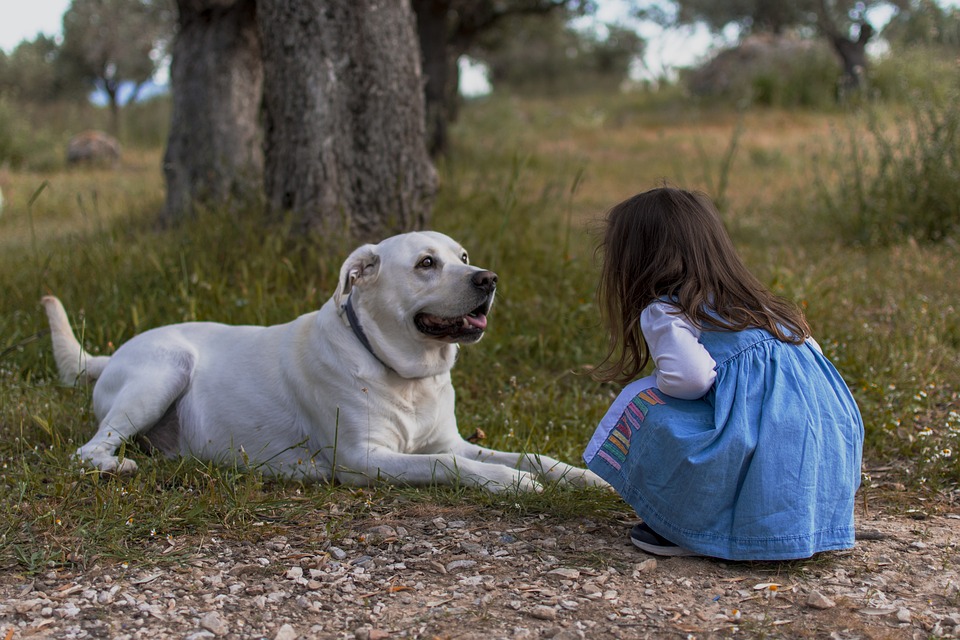As loving pet owners, we understand that our furry friends can experience anxiety just like humans do. Whether it’s separation anxiety, fear of thunderstorms, or general nervousness, it’s essential to address their anxiety and provide them with the support they need. In this article, we will explore 10 effective ways to reduce anxiety in dogs and help them live a happier, stress-free life.
1. Create a Calming Environment
Creating a calming environment is crucial for dogs with anxiety. Provide a safe and quiet space for them to retreat to when they feel overwhelmed. Use soft, comfortable bedding and minimize external stimuli such as loud noises or bright lights.
2. Regular Exercise and Mental Stimulation
Physical exercise and mental stimulation play a significant role in reducing anxiety in dogs. Daily walks, engaging playtime, and puzzle toys can help burn off excess energy and distract them from anxious thoughts.
3. Establish a Consistent Routine
Dogs thrive on routine, and a consistent schedule can help alleviate anxiety. Establish regular feeding times, exercise routines, and bedtime rituals. This predictability provides a sense of security and reduces stress.
4. Provide a Balanced Diet
A well-balanced diet can contribute to your dog’s overall well-being, including their mental health. Ensure they receive a diet rich in essential nutrients, vitamins, and minerals. Consult with your veterinarian for dietary recommendations specific to your dog’s needs.
5. Try Calming Supplements
Calming supplements, such as CBD oil or natural herbal remedies, can be effective in reducing anxiety in dogs. However, it’s crucial to consult with your veterinarian before introducing any new supplements to ensure they are safe and suitable for your pet.
6. Use Anxiety Wraps or Thundershirts
Anxiety wraps or Thundershirts are snug-fitting garments that apply gentle pressure to your dog’s body, providing a sense of security. These can be particularly helpful during thunderstorms, fireworks, or other anxiety-inducing situations.
7. Implement Behavior Modification Techniques
Behavior modification techniques, such as desensitization and counter-conditioning, can help dogs overcome specific anxiety triggers. Gradually exposing them to the source of their anxiety while using positive reinforcement can help change their response over time.
8. Consider Professional Training or Therapy
In severe cases of anxiety, professional training or therapy may be necessary. A certified dog behaviorist or trainer can work with you and your dog to develop a customized plan to address their anxiety effectively.
9. Utilize Aromatherapy
Aromatherapy using essential oils can have a calming effect on dogs. Lavender, chamomile, and valerian are known for their relaxing properties. However, it’s essential to use pet-safe oils and consult with a veterinarian or professional aromatherapist before introducing them to your dog.
10. Seek Veterinary Advice and Medication if Needed
If your dog’s anxiety persists or significantly impacts their quality of life, consult with your veterinarian. They may recommend medication to help manage their anxiety. Medication should always be used under the guidance of a professional and as part of a comprehensive treatment plan.
FAQs about Reducing Anxiety in Dogs
Q: Can anxiety in dogs be cured completely?
A: While anxiety in dogs may not be completely cured, it can be effectively managed through various techniques and treatments. The goal is to improve their overall well-being and reduce the frequency and intensity of anxiety episodes.
Q: How long does it take for these techniques to show results?
A: The time it takes for these techniques to show results may vary depending on the individual dog and the severity of their anxiety. Some dogs may respond quickly, while others may require more time and patience. Consistency and positive reinforcement are key.
Q: Is it possible to prevent anxiety in dogs?
A: While it may not be possible to prevent anxiety in all dogs, providing a stable and nurturing environment from a young age, socializing them properly, and addressing any potential triggers early on can significantly reduce the likelihood of anxiety developing.
Q: Are there any natural remedies for anxiety in dogs?
A: Yes, there are several natural remedies for anxiety in dogs, including herbal supplements, aromatherapy, and calming pheromone products. However, it’s crucial to consult with a veterinarian before using any natural remedies to ensure they are safe and suitable for your pet.
Q: Should I consider adopting another dog to help with my anxious dog’s condition?
A: While some dogs may benefit from the companionship of another well-adjusted dog, it’s essential to consider each dog’s individual needs and temperament. Introducing a new dog should be done gradually and under the guidance of a professional to ensure a positive outcome for both dogs involved.
Reducing anxiety in dogs requires patience, understanding, and a tailored approach. By implementing these effective techniques and seeking professional guidance when needed, you can help your beloved canine companion lead a happier, more relaxed life. Remember, a calm and content dog is a healthy dog!









